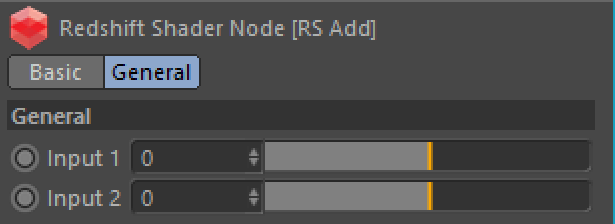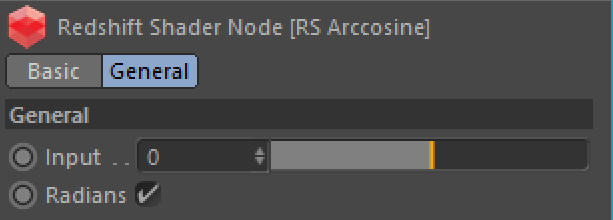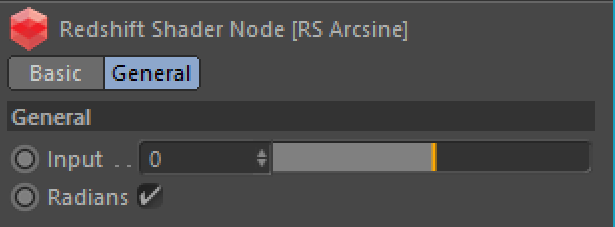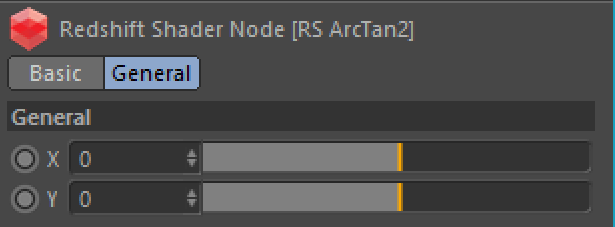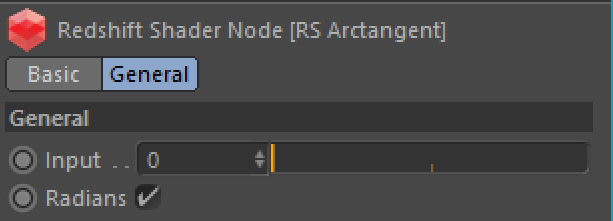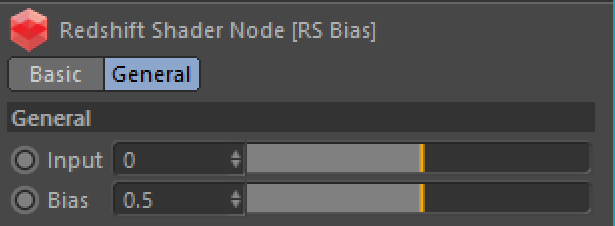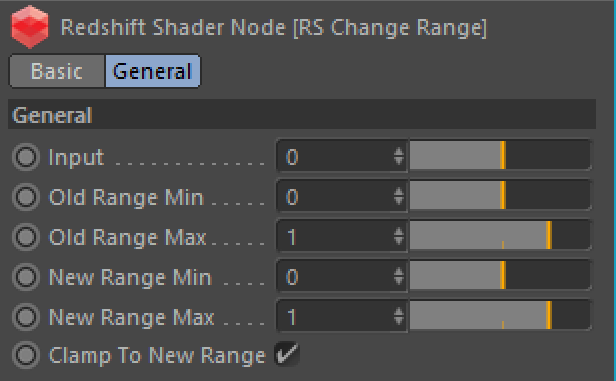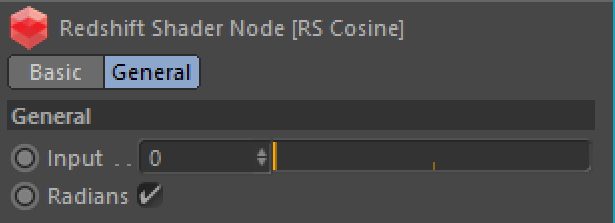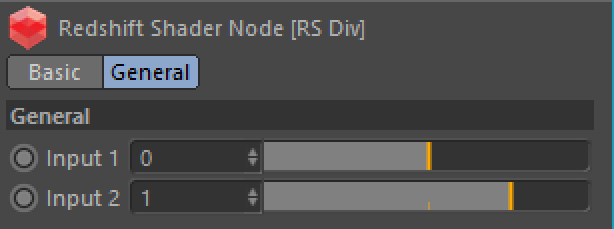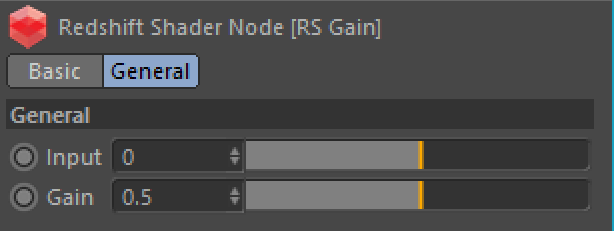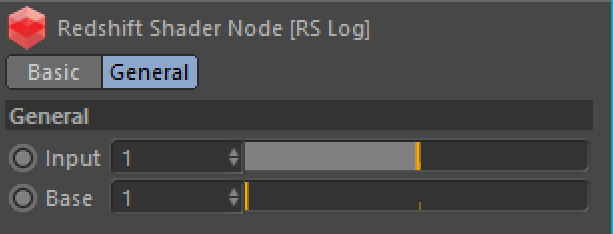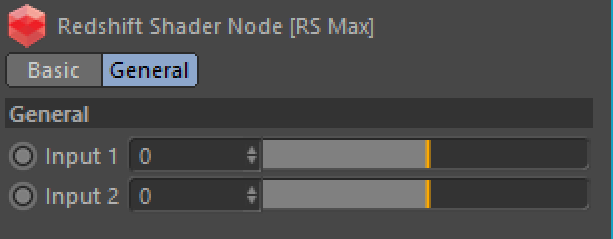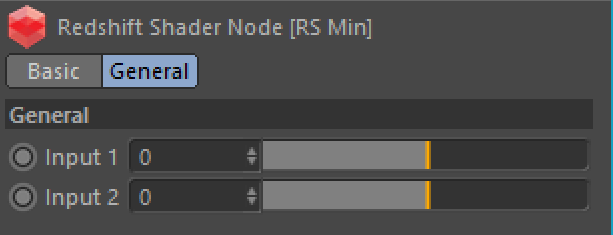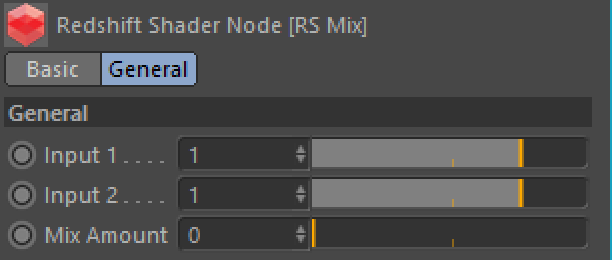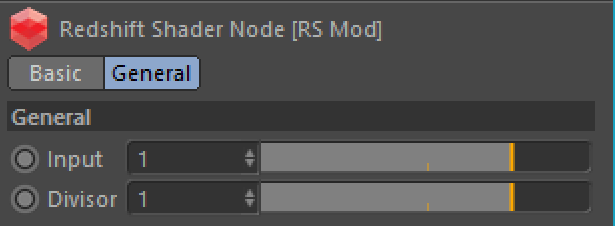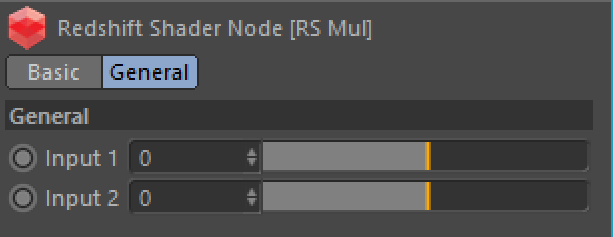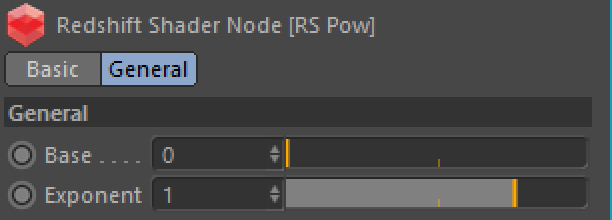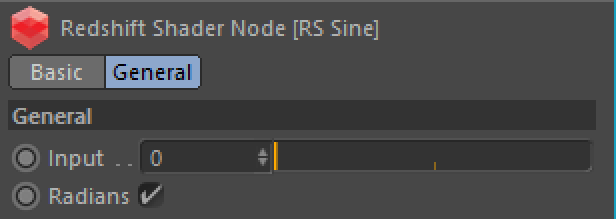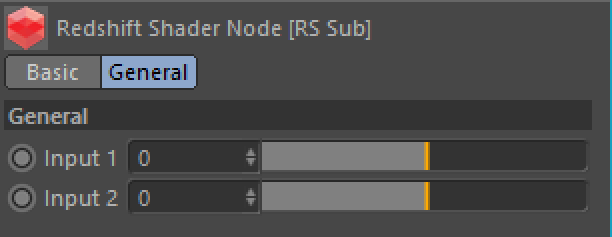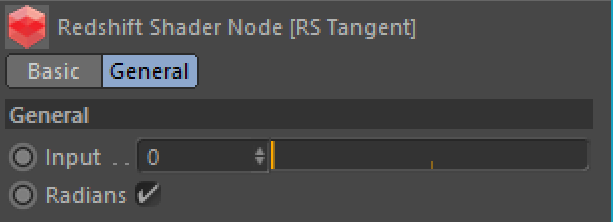Table Of Contents
- Introduction
- Abs
- Add
- ArcCosine
- ArcSine
- ArcTan2
- ArcTangent
- Bias
- Change Range
- Cosine
- Div
- Exp
- Floor
- Frac
- Gain
- Invert
- Ln
- Log
- Max
- Min
- Mix
- Mod
- Mul
- Neg
- Pow
- Rcp
- Saturate
- Sign
- Sine
- Sqrt
- Sub
- Tangent
Introduction
Redshift supports a wide variety of commonly used math operation shaders for both scalar (float) values and vectors. All math nodes that process float values are listed here:
Abs
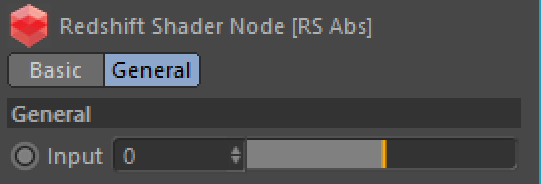
Returns the absolute value of Input. For example, a value of -1.0 will be returned as 1.0.
Add
Returns Input 1 + Input 2.
ArcCosine
Returns the arc-cosine of Input. When Radians is selected, the output range will be between 0 and PI, otherwise 0 and 180 degrees.
ArcSine
Returns the arc-sine of Input. When Radians is selected, the output range will be between -PI/2 and PI/2, otherwise -90 and 90 degrees.
ArcTan2
Returns the arc-tangent of Input 1 and Input 2. When Radians is selected, the output range will be between -PI/2 and PI/2, otherwise -90 and 90 degrees.
ArcTangent
Returns the arc-tangent of Input. When Radians is selected, the output range will be between -PI/2 and PI/2, otherwise -90 and 90 degrees.
Bias
Returns a curved bias of Input by Bias, using the following Ken Perlin formula: pow(Input, log(Bias)/log(0.5))
Change Range
Returns Input remapped from Old Range values to New Range values, with an optional clamp.
Cosine
Returns the cosine of Input. When Radians is selected, the input will be assumed to be in radians, otherwise degrees.
Div
Returns Input 1 / Input 2.
Exp
Returns the exponential of Input, using the following formula: e^ Input
This is the inverse function of Ln.
Floor
Returns the integer part of Input. For example, 1.5 will be returned as 1.0.
Frac
Returns the fractional part of Input. For example, 1.5 will be returned as 0.5.
Gain
Returns a contrast gain of Input by Gain, using the following Ken Perlin formula:
Bias( 2 * Input, 1 - Gain ) * 0.5 ; if Input < 0.5
1 - Bias( 2 - 2 * Input, 1 - Gain ) * 0.5 ; otherwise
Invert
Returns the 1 - Input.
Ln
Returns the natural logarithm (to base e) of Input.
This is the inverse function of Exp.
Log
Returns the logarithm of Input to Base.
This is the inverse function of Pow.
Max
Returns the maximum of Input 1 and Input 2.
Min
Returns the minimum of Input 1 and Input 2.
Mix
Returns Input 1 linearly interpolated to Input 2 by Mix. When Mix is 0.0, Input 1 will be returned. When Mix is 1.0, Input 2 will be returned.
Mod
Returns the modulo of Input by Divisor. For example 7 modulo 5 will be returned as 2.
This is the remainder of Input / Divisor.
Mul
Returns Input 1 * Input 2.
Neg
Returns 0 - Input.
Pow
Returns Base^ Exponent.
This is the inverse function of Log.
Rcp
Returns 1 / Input.
Saturate
Returns Input clamped to values between 0 and 1, inclusively. For example -1.5 will be returned as 0.0 and 1.5 will be returned as 1.0.
Sign
Returns -1 if Input is a negavitve number and 1 otherwise.
Sine
Returns the sine of Input. When Radians is selected, the input will be assumed to be in radians, otherwise degrees.
Sqrt
Returns the square-root of Input.
Sub
Returns Input 1 - Input 2.
Tangent
Returns the tangent of Input. When Radians is selected, the input will be assumed to be in radians, otherwise degrees.
